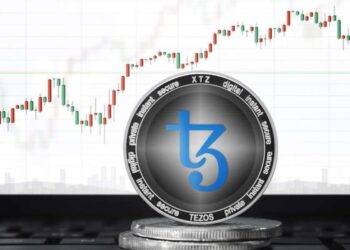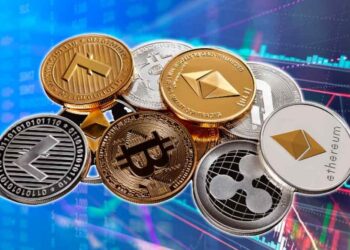The repo rate is the rate at which commercial banks borrow money by selling their securities to our country’s central bank, the Reserve Bank of India (RBI), in order to maintain liquidity in the event of a fund shortage or due to statutory measures. It is one of the RBI’s primary tools for keeping inflation under control.
The Reserve Bank of India (RBI) unexpectedly raised the key interest rate by 40 basis points on Wednesday to tame inflation, which has remained stubbornly above the target in recent months. The announcement caused equity benchmarks to fall sharply, with the BSE Sensex falling more than 1,400 points in intraday trade to close at 55,669.03. While the NSE Nifty settled below 16,700 after a 391-point loss. Borrowers will be unconcerned because they are currently paying the lowest interest rates in the last two decades, but this can make fixed deposit (FD) investors nervous.
What is actually meant by Repo Rate?
The repo rate is the rate at which the RBI lends to commercial banks, so the move will make borrowing more expensive. An increase in the repo rate implies that banks will raise their lending rates, particularly home loan interest rates, implying an increase in borrowers’ EMIs. In a nutshell, the days of ultra-low interest rates have passed.
A Fine Move To Control Inflation?

While the central bank has managed to push through a rate hike for the time being, given the global turmoil, it may not be able to do so indefinitely. Things could change in the future. The central bank has been attempting to strike a balance between economic growth and inflation. Because corona-related restrictions have had a negative impact on economic growth, the RBI’s focus has thus far been on reviving growth. However, there are numerous indicators indicating that inflation may become a concern in the near future.
According to the global trend, all indicators point to higher inflation in the coming months. Retail inflation in the United States has reached a 40-year high of 7.9 percent in February 2022. To keep future inflation under control, the US Federal Reserve raised interest rates by 0.25 percent on March 16, 2022, and hinted at further increases in the future.
Retail inflation in India, as measured by the Consumer Price Index (CPI), has risen to 6.07 percent in February 2022, the highest level in the last eight months. The central bank’s primary focus will shift to its core mandate, which is to manage retail inflation and keep it within the 2-6 percent range. Higher domestic retail inflation in the coming days may also compel the RBI to raise policy rates in the future.
With the possibility of a rate hike imminent, India’s G-Sec rate, which serves as the country’s benchmark interest rate, has already risen from 6.46 percent on January 3, 2022, to 6.84 percent on March 31, 2022.
How will the move affect your loans?

With the repo rate increase, floating-rate loans will become more expensive, while all new loans will most likely be priced higher. This will result in higher interest payments and EMIs. Rates on floating-rate bank loans taken after October 2019 will rise by 40 basis points at the next rate reset date specified in the loan agreement. The EMI of a floating rate loan fluctuates in response to changes in market interest rates. If market interest rates rise, so will the repayment. When interest rates fall, so do the dues.
The increase in the repo rate will affect all retail floating rate loans – home, car, gold, or personal – that are linked to an external benchmark to ensure that interest rate movements are transmitted to loan accounts as quickly as possible. According to Reserve Bank of India data, 39% of bank loans are linked to an external benchmark as of December 2021.
What about your car loans?

An auto loan’s maximum term ranges between 5 and 7 years. Depending on whether you plan to take out a new loan or are an existing borrower, you can take advantage of the repo rate pause.
For the new borrowers, Most car loans are still financed on a fixed interest rate basis, which means that whatever interest rate you get at the time of loan application will remain fixed for the duration of the loan. As a result, the entry point of the loan becomes critical.
A slight relief in FDs’
Deposit interest rates are now expected to rise, providing some relief to the common man. With the low-interest rate regime coming to an end, it is better to opt for a shorter-term FD so that your deposit is not locked at a lower rate for an extended period of time. When interest rates are high, you can choose a longer-term fixed deposit.
The relationship between the stock market and repo rate
The stock market and interest rates are inversely related. As previously stated, when the RBI raises the repo rate, the amount of cash available in the market decreases. This means that businesses are also reducing their spending on expansion. This lack of spending slows the growth and has an impact on profit and future cash flows, which could even lead to a drop in stock prices. If a number of companies follow suit, the entire market or indexes will fall as well. An increase in interest rates will increase savings while decreasing capital inflows in the economy.

People prefer to invest more money in fixed income instruments due to a fall in the equity premium as interest rates rise in the market. The difference between equity returns and risk-free returns is referred to as the equity premium.
As evident, The 40 basis point increase in the repo rate, the first since August 2018, and the 50 basis point increase in the cash reserve ratio (CRR) sent stocks plummeting. The Sensex fell 1,307 points for the day, while the Nifty50 fell below 16,700, breaching the lower end of a range that had gained respect among traders in the past for bouncebacks.
A decrease in interest rates, on the other hand, will increase capital flows to the stock market. This increases the possibility of higher stock returns as the company continues on its expansion spree.
Furthermore, the impact of a decrease or increase in the repo rate does not have the same impact on all sectors. For example, capital-intensive industries such as capital goods, infrastructure, and so on are more vulnerable to these changes due to high capital or debt on these companies’ books. While stocks in sectors such as information technology (IT) and fast-moving consumer goods (FMCG) tend to be less affected.
Conclusion
The very recent sharp move by The RBI to hike the repo rate will have alarming consequences which need to be discussed. Most importantly, the common man will be effected through his loans. In this article, we have covered a detailed explanation of how the hike in the repo rate affects the economy already in the doldrums. The stock market has been slumped to a sharp dip due to the current move by the RBI. We hope you liked reading the explainer. How do you think the hike in repo rate will affect the economy and control the situation of stagflation? Let us know in the comment section.
Also, Checkout: What is Supply Shock Inflation, and Why Should you Care About it?
















